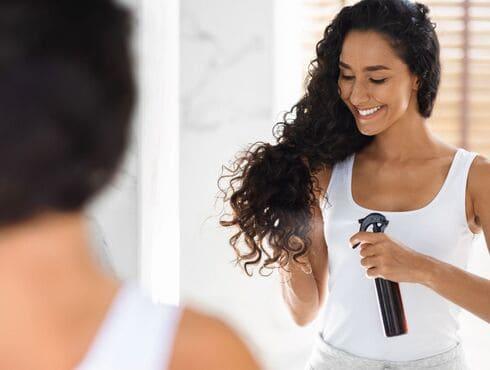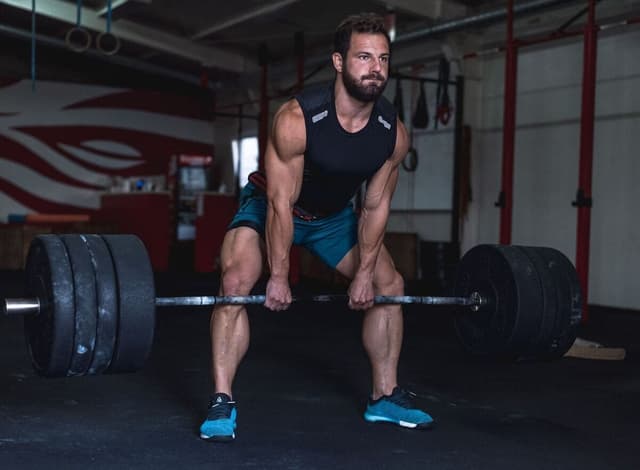Does Creatine Cause Hair Loss? Separating Myth from Fact

July 8, 2024
Creatine is one of the most popular supplements in the fitness world, praised for its ability to improve strength, endurance, and muscle mass. However, despite its widespread use, some myths still persist about its side effects—one of the most prevalent being that creatine causes hair loss. For many people researching the best creatine supplements, this concern can be a potential dealbreaker. But is there any truth behind this claim, or is it simply a myth? In this article, we’ll dive deep into the science, dispel the myths, and uncover the facts about creatine and hair loss.
Does Creatine Cause Hair Loss? The Science Behind the Myth
The myth that creatine causes hair loss originated from a 2009 study conducted on a small group of rugby players. The study suggested that creatine use could increase dihydrotestosterone (DHT), a hormone linked to hair loss, by about 56%. However, while DHT is known to be a major factor in male pattern baldness, it’s important to note that the study didn’t actually track hair loss among participants. It merely observed a rise in DHT levels, leading to speculation that creatine might contribute to hair loss.
What Does the Research Say?
- Limited Evidence: The 2009 study is the only piece of research that directly links creatine to increased DHT levels, and it only involved 20 participants. Given how widely creatine is used globally, you would expect to see much more data supporting this claim if it were a significant issue.
- No Hair Loss Reported: Most users of creatine do not report any hair loss, and there hasn’t been a large-scale, peer-reviewed study showing a direct link between creatine and hair loss. In fact, the supplement has been used safely by millions for decades.
- Genetics Play a Major Role: Hair loss, especially male pattern baldness, is heavily influenced by genetics. While hormones like DHT do play a role, creatine alone is not likely to be the root cause if you're already predisposed to hair thinning.
In conclusion, while creatine may affect DHT levels slightly, there’s insufficient evidence to support the claim that it leads to hair loss. So, if you’re worried about your hair while looking for the best creatine supplement, rest assured that the research doesn't confirm a direct link.
Common Misconceptions About Creatine and Hair Loss
Like many health-related topics, creatine's reputation has been shaped by myths and misconceptions. Let’s explore some of the most common misunderstandings and set the record straight.
1. Creatine Causes Hormonal Imbalance
Some people believe that creatine disrupts hormone levels, which could lead to side effects like hair loss, acne, or aggression. However, creatine is a naturally occurring substance found in our muscles and food sources like red meat and fish. Supplementing with creatine only increases the body's natural stores and does not drastically affect hormonal balance for the majority of people.
2. All Hair Loss is Due to DHT
While DHT is a known factor in hair thinning, it’s not the only reason for hair loss. Factors such as stress, nutrition, and overall health can contribute to the issue. If you’re genetically predisposed to baldness, DHT levels may accelerate the process, but other lifestyle factors often play a more significant role.
3. Creatine Causes Permanent Changes
Another misconception is that once you stop taking creatine, your body will suffer permanent side effects. In reality, any changes in DHT or muscle mass while using creatine will reverse once you stop supplementation. Creatine is not known to cause lasting negative effects, and it’s generally safe when used correctly.
In conclusion, these misconceptions have contributed to the lingering fear around creatine and hair loss, but the facts tell a different story. As you search for the best creatine, it's important to focus on accurate information and not be misled by these myths.
Our Top Recommendations

Optimum Nutrition Micronized Creatine Monohydrate Powder
Micronized for easy mixing, supports muscle growth and endurance.
See on Amazon$0.35 per 5g serving

Nutricost Creatine Monohydrate Micronized Powder
Third-party tested, non-GMO, 5g of pure creatine per serving.
See on Amazon$0.2 per 5g serving

NSF Certified, supports muscle power and recovery.
See on Amazon$0.46 per 5g serving

ProMix Creatine Monohydrate Powder
Micronized, additive-free, ideal for performance and recovery.
See on Amazon$0.36 per 5g serving

NOW Foods Sports Nutrition Unflavored
100% pure creatine, GMP certified, boosts strength and endurance.
See on Amazon$0.2 per 5g serving
Practical Steps: How to Use Creatine Safely and Effectively
If you’re still on the fence about using creatine due to concerns about hair loss, there are practical steps you can take to ensure you're using it safely and effectively.
1. Choose the Best Creatine Supplement
Not all creatine products are created equal. Look for high-quality options like creatine monohydrate, which has been extensively studied and proven effective. Avoid creatine products with unnecessary additives or fillers. When searching for the best creatine, make sure it is third-party tested to ensure its purity and quality.
2. Stick to the Recommended Dosage
Many of the supposed side effects of creatine, including bloating or digestive discomfort, occur because users take too much. The standard dosage is 3-5 grams per day after an initial loading phase (if you choose to do one). Taking more than recommended won’t increase benefits but may lead to unwanted side effects.
3. Cycle Creatine Use
If you're concerned about any potential side effects, you could consider cycling creatine. This involves taking creatine for a set period (e.g., 8-12 weeks), then taking a break for a few weeks. Although cycling is not necessary for everyone, some athletes prefer this method to give their body a break from constant supplementation.
4. Maintain a Balanced Diet
Remember that no supplement can replace a good diet. Creatine works best when combined with proper nutrition and hydration. Ensure you're eating a balanced diet rich in lean proteins, healthy fats, and complex carbohydrates to fuel your workouts and support overall health.
5. Monitor Your Body
If you start using creatine and notice changes in your hair or any other unexpected side effects, pay attention to your body. While creatine is safe for most people, individual reactions can vary. If you're concerned about hair loss or any other issues, consult a healthcare professional or dermatologist.
By following these practical steps, you can confidently use creatine to enhance your athletic performance without worrying about the myths surrounding hair loss.
Conclusion: Separating Fact from Fiction
Creatine is an effective and widely-used supplement, trusted by athletes and fitness enthusiasts alike for its proven benefits in increasing muscle mass and improving workout performance. While concerns about creatine causing hair loss have lingered for years, the evidence to support this claim is limited and largely speculative.
The myth originated from a single, small-scale study that observed a temporary increase in DHT levels, but no direct link to hair loss was ever confirmed. Moreover, factors like genetics, stress, and diet play a far greater role in hair loss than creatine supplementation.
For those researching the best creatine supplement, rest assured that it is safe to use and doesn’t pose a significant risk of causing hair loss. Focus on high-quality creatine monohydrate, stick to the recommended dosage, and pair your supplementation with a balanced diet to achieve the best results. If you're still concerned, cycling your creatine intake or consulting a healthcare professional can provide additional peace of mind.
In the end, creatine remains one of the most effective and well-researched supplements available. Don’t let myths and misconceptions hold you back from using a product that can significantly enhance your fitness journey. Ready to take the next step? Explore our guide on finding the best creatine supplements that suit your needs.






